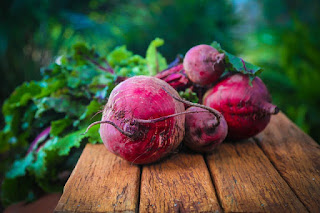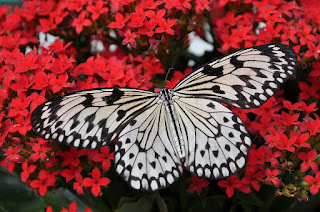Beeting Cancer and Heart Disease
Welcome to blog #2! Please subscribe and share if you like what you read, so we can get the word out on the real answers to cancer and heart disease.
Beets are an amazing root vegetable. Their nutritional benefit is as potent as the deep, red color they adorn themselves with in all seasons....unapologetically. Especially in such a toxic world; I believe beets could be part of the answer, nutritionally, to reducing cases of heart disease and cancer.
Are you like, wait a second Tressa. How is this world toxic? I'll tell you.
Toxic chemicals are, unfortunately, all around us. A great book to read is Detoxify or Die by Dr. Sherry A. Rogers. Personal care products have chemicals, packaged foods have chemicals, over the counter medicines have chemicals, the air has pollution (toxic), even your plastic water bottle and your dry cleaning and your new carpet are off-gassing chemicals. These chemicals are hormone disruptors. They can actually mimic hormones, except they wreak havoc instead of regulating anything. They cause weight gain, low energy, high blood pressure, allergies, depression, malignancies and heart attacks. Chemicals are everywhere. It's estimated that we are exposed to thousands of chemicals a day. We are even born with around 200 chemicals already within us.
So, I'm sorry to say, that yes, this is a toxic world. The good news is that we CAN prevent, or at least lower disease risk with whole, healthy, organic foods. The foods God made for us to eat.
Ok, back to beets. Let's talk about why I think beets are part of the answer to heart disease and cancer.
Basically, beets have qualities that help reduce risk for both heart disease and cancer (1). Beets can help reduce heart disease by lowering blood pressure. They help boost nitric oxide production, which helps relax and expand artery and vein walls. You feel it happening after a workout. It's that "ahh I feel so good that was a great workout" kind of feeling. Eating beets won't necessarily make you feel like you worked out, but if you eat beets regularly, you will have healthier veins and a lower chance of heart disease. Some studies show you can get a better workout, and perhaps a longer workout, when you have healthier nitric oxide levels.
Beets also have a special phytochemical within their structure that can help reduce cancer risk (2).
It's the pigmentation that colors the beet, called betalains, that gives it a potent anti-oxidant power. The antioxidants chase down the free radicals (aka chemicals and toxins) and neutralize them like Will Smith in Men In Black. If we are in a war against toxicity, which- like I said before- I firmly believe we are, then vegetables like beets are a huge part of the answer.
So, let's eat some beets. My personal favorite way to feel the benefits of beets is to juice them. I juice 2-3 beets, a large carrot, an apple, kale and cucumber. This juice gives me energy and a clear mind for hours. Pickled beets are popular on salads. Beets have a taste you either love or hate, but I'd advise that if you have heart disease or cancer in your family, you may want to learn to love them.
There are many dried beet powder supplements, and some of them are good. One product in particular I've taken and I like is NEO40. It's a tablet that dissolves in your mouth. I like that within about 10 minutes I do actually feel like I worked out- my legs relax. It's pretty cool. It's also expensive, so these days, I stick with the original beet root vegetable. If in doubt, go for the whole food version.
Here is the nutrient breakdown of 1 cup of raw beets*:
Fiber, 4 grams
Folate, 148 mcg
Iron, 1.1 mg
Magnesium, 31.3 mg
Manganese, .4 mg
Potassium, 442 mg
Protein, 2 grams
Vitamin c, 6.7 mg
*pickled beets have almost 600mg of sodium and half as much folate.
Fiber helps keep your system clean, folate provides energy, heart health and well-being, Iron helps with energy, magnesium and potassium are critical for heart health and hormone balance. Vitamin C boosts the immune system and helps form collagen for younger skin.
Eating healthy can be over whelming. I am a nutritionist, so I eat healthy about 75% of the time, but I'm not perfect; I slip up. Sometimes I eat twizzlers and ice cream on the weekends. This is why, especially during the week, I'm always looking for ways to eat more super-food fruits or veggies. I try to pick just one each week to add to the shopping cart, and I try to eat all of it by the end of the week. Sometimes it's broccoli. Sometimes it's beets, mushrooms, cauliflower, or flax. I don't really have a definition of a super-food, other than it's linked, somehow to the reduction of cancer and heart disease. If you are overwhelmed with how to incorporate healthy foods into your diet, just pick one "super-food" a week to add in. You could even count on me, and this blog, to inspire you for that new healthy food each week. As a matter of fact, that's why I write this.
If you have read this blog and learned anything from it (or appreciate the reminders), please share this article with friends and subscribe for future updates (top right side of blog).
Beets are an amazing root vegetable. Their nutritional benefit is as potent as the deep, red color they adorn themselves with in all seasons....unapologetically. Especially in such a toxic world; I believe beets could be part of the answer, nutritionally, to reducing cases of heart disease and cancer.
Are you like, wait a second Tressa. How is this world toxic? I'll tell you.
Toxic chemicals are, unfortunately, all around us. A great book to read is Detoxify or Die by Dr. Sherry A. Rogers. Personal care products have chemicals, packaged foods have chemicals, over the counter medicines have chemicals, the air has pollution (toxic), even your plastic water bottle and your dry cleaning and your new carpet are off-gassing chemicals. These chemicals are hormone disruptors. They can actually mimic hormones, except they wreak havoc instead of regulating anything. They cause weight gain, low energy, high blood pressure, allergies, depression, malignancies and heart attacks. Chemicals are everywhere. It's estimated that we are exposed to thousands of chemicals a day. We are even born with around 200 chemicals already within us.
So, I'm sorry to say, that yes, this is a toxic world. The good news is that we CAN prevent, or at least lower disease risk with whole, healthy, organic foods. The foods God made for us to eat.
Ok, back to beets. Let's talk about why I think beets are part of the answer to heart disease and cancer.
Basically, beets have qualities that help reduce risk for both heart disease and cancer (1). Beets can help reduce heart disease by lowering blood pressure. They help boost nitric oxide production, which helps relax and expand artery and vein walls. You feel it happening after a workout. It's that "ahh I feel so good that was a great workout" kind of feeling. Eating beets won't necessarily make you feel like you worked out, but if you eat beets regularly, you will have healthier veins and a lower chance of heart disease. Some studies show you can get a better workout, and perhaps a longer workout, when you have healthier nitric oxide levels.
Beets also have a special phytochemical within their structure that can help reduce cancer risk (2).
It's the pigmentation that colors the beet, called betalains, that gives it a potent anti-oxidant power. The antioxidants chase down the free radicals (aka chemicals and toxins) and neutralize them like Will Smith in Men In Black. If we are in a war against toxicity, which- like I said before- I firmly believe we are, then vegetables like beets are a huge part of the answer.
 |
| Image by Tracy Lundgren from Pixabay |
So, let's eat some beets. My personal favorite way to feel the benefits of beets is to juice them. I juice 2-3 beets, a large carrot, an apple, kale and cucumber. This juice gives me energy and a clear mind for hours. Pickled beets are popular on salads. Beets have a taste you either love or hate, but I'd advise that if you have heart disease or cancer in your family, you may want to learn to love them.
There are many dried beet powder supplements, and some of them are good. One product in particular I've taken and I like is NEO40. It's a tablet that dissolves in your mouth. I like that within about 10 minutes I do actually feel like I worked out- my legs relax. It's pretty cool. It's also expensive, so these days, I stick with the original beet root vegetable. If in doubt, go for the whole food version.
Here is the nutrient breakdown of 1 cup of raw beets*:
Fiber, 4 grams
Folate, 148 mcg
Iron, 1.1 mg
Magnesium, 31.3 mg
Manganese, .4 mg
Potassium, 442 mg
Protein, 2 grams
Vitamin c, 6.7 mg
*pickled beets have almost 600mg of sodium and half as much folate.
Fiber helps keep your system clean, folate provides energy, heart health and well-being, Iron helps with energy, magnesium and potassium are critical for heart health and hormone balance. Vitamin C boosts the immune system and helps form collagen for younger skin.
Eating healthy can be over whelming. I am a nutritionist, so I eat healthy about 75% of the time, but I'm not perfect; I slip up. Sometimes I eat twizzlers and ice cream on the weekends. This is why, especially during the week, I'm always looking for ways to eat more super-food fruits or veggies. I try to pick just one each week to add to the shopping cart, and I try to eat all of it by the end of the week. Sometimes it's broccoli. Sometimes it's beets, mushrooms, cauliflower, or flax. I don't really have a definition of a super-food, other than it's linked, somehow to the reduction of cancer and heart disease. If you are overwhelmed with how to incorporate healthy foods into your diet, just pick one "super-food" a week to add in. You could even count on me, and this blog, to inspire you for that new healthy food each week. As a matter of fact, that's why I write this.
If you have read this blog and learned anything from it (or appreciate the reminders), please share this article with friends and subscribe for future updates (top right side of blog).


Comments
Post a Comment